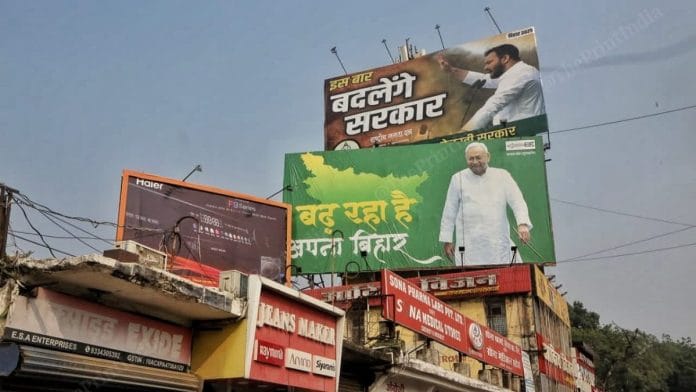The list of people disappointed with the Bihar Assembly election results is long — all the parties in the Mahagathbandhan, Prashant Kishor, their supporters. And the reason for their disappointment is obvious. Then there are some commentators who don’t necessarily belong to a partisan category but are perplexed about why Bihar has yet again emphatically chosen an incumbent chief minister — in office for nearly 20 consecutive years barring an interregnum of nine months — despite continuing to be India’s poorest state on a per capita income basis.
Ruchir Sharma is perhaps the most prominent of these. He wrote two pieces in Financial Times, London and The Times of India on the subject, wondering if there is “almost a spiritual acceptance of slow progress and of governments that put welfare before development.”
He posits that this is a phenomenon more common in the northern states than the southern ones. Is he right? And what does it mean for India?
Welfare and development
First, what is the difference between welfare and development? For many Indian voters, welfare is equated with development, government delivery of basic goods and services, with a bit of road construction (more broadly infrastructure) added to the mix. What Sharma means by development is probably rapid economic growth, but is there any mass constituency for economic growth in India? Whatever size it may be, the one thing which will be even smaller is a constituency for market-oriented reforms, which is the only path to rapid economic growth. India is fundamentally a redistributionist political economy — voters and politicians bargain on the slices of the cake rather than the size of the cake.
The South is not worlds apart. In the last Assembly elections in Karnataka, the Congress party’s promise of free bus rides to women was very popular, among other giveaways. The fate of Bengaluru’s crumbling infrastructure, the heart of the state’s economy and growth, wasn’t a primary election issue. Tamil Nadu’s elections are often dominated by promises of freebies ranging from mixer grinders to fans and gold.
If growth or “development” were enough to sway voters, why offer such an array of freebies? The only difference between South and North may be in the timing. The South began its caste-based movements and freebies-dominated elections much before the North did. So, the South may be in a later stage of the redistributionist economy, where there is some acceptance of growing the size of the cake, but even that must be continuously shared, especially during election time. The North may evolve that way.
Second, in any election, voters have to choose from the available alternatives. In Bihar, the Opposition Mahagathbandhan wasn’t promising any radical reform in policies to energise Bihar’s growth. They were simply competing on welfare, including Tejashwi Yadav’s outrageous and infeasible promise of one government job for every household in the state. From experience, voters know that Nitish-BJP delivers welfare, roads, and law & order quite well. The Mahagathbandhan doesn’t do so well in any of those and has no concrete alternative to deliver prosperity. Even Jan Suraaj focused more on the negatives of the two main alliances as its argument for change than on an exclusive focus on a radically different development narrative.
Also read: After Bihar, the vote share vs seat share debate is back again. Here’s why this matters
Centre is Left
The truth is that, on economic policy, the choice in India lies between various shades of welfare-first approaches. The BJP and the NDA in the Modi era tend to combine welfare with heavy spending on infrastructure while the Rahul Gandhi-led INDIA alliance speaks only of welfare, even socialism of the jitni abadi, utna haq kind. There is practically no major party which puts growth or its enabler, market-reforms, first. The only two national governments in the last 35 years that arguably tried doing so — Narasimha Rao’s and Vajpayee’s (they were much less focused on welfare spending) — were handed crushing defeats. Even Chandrababu Naidu, who was more growth- and market-oriented in his first stint as CM, came back chastened after spending a decade in opposition to YS Rajasekhara Reddy and his economic populism. In India’s economics, the Centre is Left.
The BJP/NDA under Modi has read this pulse of the people. It brings to the table a very efficient approach to welfare and a commitment to investment in productive infrastructure like roads, bridges, and airports. In doing this much, it can easily outcompete the Opposition. Add to that the charisma of NDA leaders — Modi, of course, is numero uno but there are the likes of Nitish, Yogi, and Fadnavis in the state ranks — along with their aspirational vision of a developed India (stark contrast with the Opposition’s negativity), and you can see why they win, again and again.
Bihar’s verdict is not a spiritual acceptance of slow progress. At this stage, welfare, plus some infrastructure, is “development”. And people vote not with resignation, but positivity, for the party or coalition that is likely to deliver it best. Bihar will evolve and eventually prosper. But the nature of the political economy means that the journey for Bihar, and India, is slower than some would like.
The author is Chief Economist, Vedanta. He tweets @nayyardhiraj. Views are personal.
(Edited by Aamaan Alam Khan)







Excellent insights! Agree with the hypothesis.